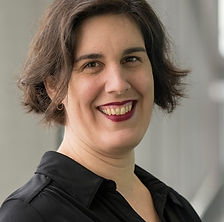Prof Adriane Chapman
PhD
Professor of Computer Science, Director of the ECS Centre for Health Technology

Profile page(s)
Professor Chapman is head of the ECS Digital Health and Biomedical Engineering research group. She is Director of the Centre for Health Technologies.
Her focus is on how to create, design and enable fair and explainable AI systems. She has an internationally recognized career in the field of provenance. She won ACM SIGMOD’s 2016 Test of Time Award for her work on provenance, “Provenance Management in Curated Databases,” which is awarded to the paper with the most impact from the SIGMOD Proceedings 10 years prior. She has over 30 peer-reviewed publications. She has designed software systems for agencies across the US government with an eye towards technical requirements and the ability of the government to implement and sustain the program.
Landmark publications:
Adriane Chapman and H. V. Jagadish. 2009. Why not? In Proceedings of the 2009 ACM SIGMOD International Conference on Management of data (SIGMOD '09). Association for Computing Machinery, New York, NY, USA, 523–534. https://doi.org/10.1145/1559845.1559901
Magesh Jayapandian, Adriane Chapman, V. Glenn Tarcea, Cong Yu, Aaron Elkiss, Angela Ianni, Bin Liu, Arnab Nandi, Carlos Santos, Philip Andrews, Brian Athey, David States, H. V. Jagadish, Michigan Molecular Interactions (MiMI): putting the jigsaw puzzle together, Nucleic Acids Research, Volume 35, Issue suppl_1, 1 January 2007, Pages D566–D571, https://doi.org/10.1093/nar/gkl859
Major grants:
UKRI Trustworthy Autonomous Systems Hub
(EP/V00784X/1) - £12m
Impact examples:
Professor Chapman has an established track record translating her scientific work into governmental pilots. She has written reports and run pilots for provenance within several US government agencies, including NRO, NGA, ONR, and Army. Her work on health records informed the Office of the National Coordinator for Health Information (ONC)’s standard for health records in the United States, as well as the adoption of technology choices for US health data exchange. Her work on data integration and provenance became the cornerstone for the US National Center for Integrative Biomedical Informatics (NCIBI).